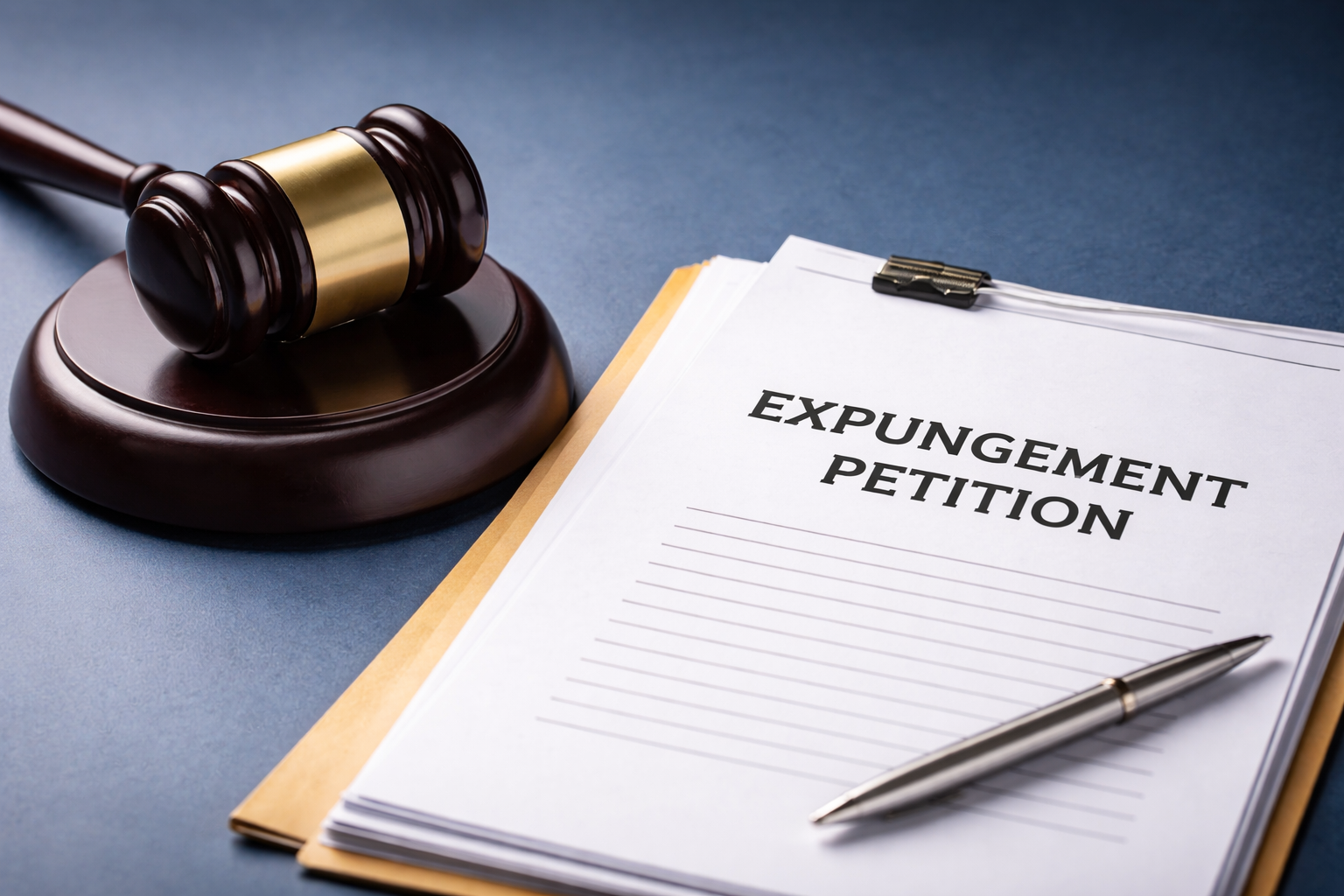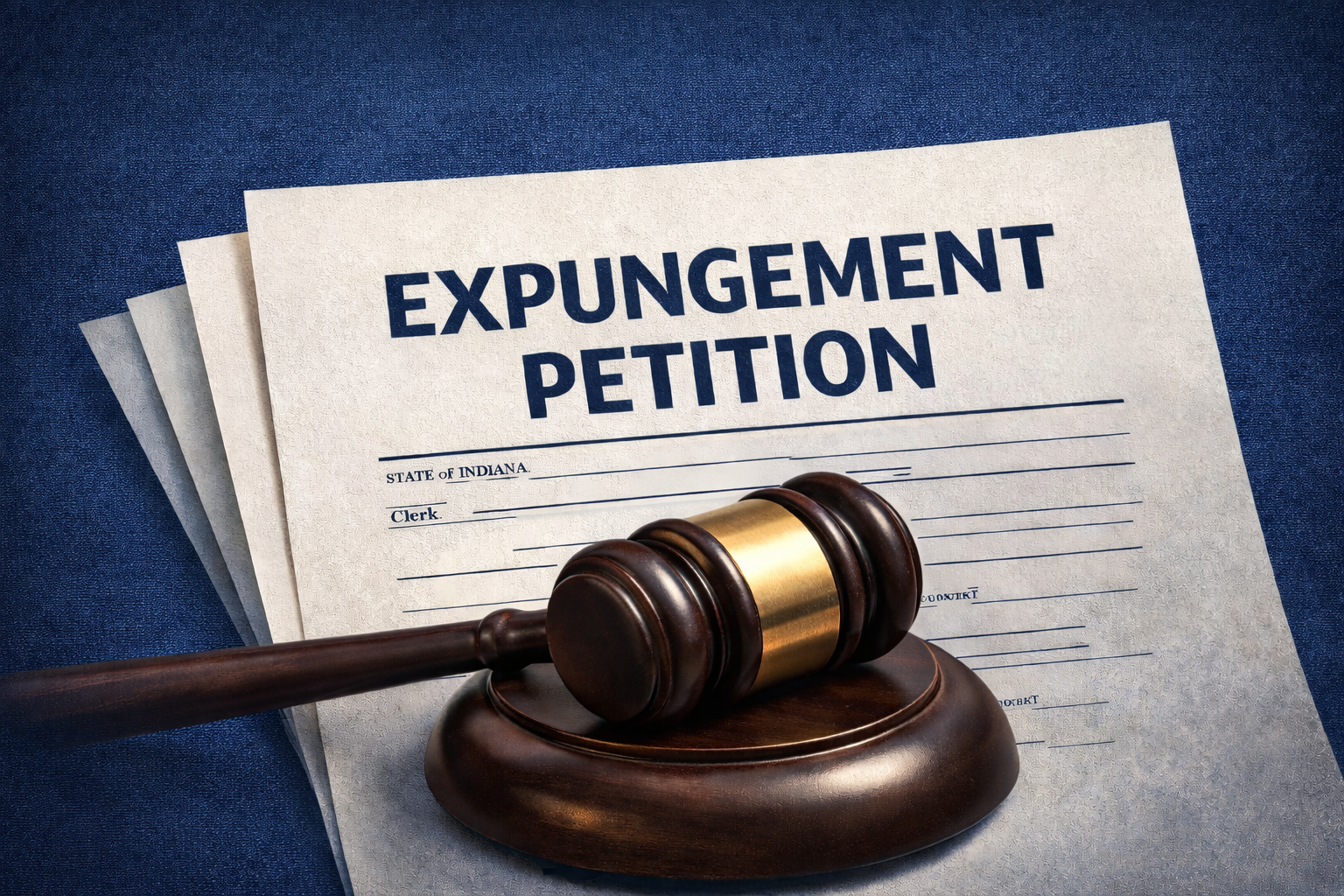Indiana Expungement: What Convictions Cannot Be Expunged?
Expungement in Indiana offers individuals with past convictions a second chance by sealing or removing their criminal records. This process can open doors to better employment, housing, and other opportunities. However, not all convictions are eligible for expungement under Indiana law. If you're wondering whether your record qualifies, it's essential to understand the limitations and exclusions that may apply.
In this post, we’ll break down which offenses cannot be expunged in Indiana, why these exclusions exist, and what options may still be available if you have an ineligible conviction.
Expungement in Indiana: A Fresh Start (But Not for Everyone)
Expungement allows individuals to have certain criminal records sealed or destroyed, preventing the public (including most employers) from accessing them. This process can significantly improve a person’s ability to move forward without past mistakes impacting their future.
Benefits of Expungement in Indiana:
✔ Improved job prospects
✔ Easier access to housing and financial opportunities
✔ Restoration of certain rights, such as firearm possession (in some cases)
✔ Reduced stigma and increased privacy
However, not every conviction is eligible for expungement. Indiana law, specifically Indiana Code § 35-38-9, outlines the offenses that cannot be removed from a person’s record.
What Convictions Cannot Be Expunged in Indiana?
While many misdemeanors and non-violent felonies can be expunged, certain serious crimes are permanently disqualified from expungement.
1. Serious Violent Felonies
Indiana law excludes the most serious violent crimes from expungement, including:
🚫 Murder
🚫 Voluntary Manslaughter
🚫 Attempted Murder
🚫 Kidnapping
🚫 Human Trafficking
These offenses involve extreme harm to victims and are considered too severe to be removed from a person’s criminal record.
2. Crimes Against Children
Indiana courts protect vulnerable populations, particularly children. Crimes involving harm, abuse, or exploitation of children are not eligible for expungement, including:
🚫 Child Molestation
🚫 Child Exploitation or Possession of Child Pornography
🚫 Neglect of a Dependent (involving serious injury or death)
🚫 Sexual Misconduct with a Minor
3. Sex Offender Registry Offenses
Anyone required to register as a sex offender due to their conviction cannot have their record expunged. These crimes include:
🚫 Rape
🚫 Sexual Battery (under certain circumstances)
🚫 Criminal Deviate Conduct (prior to its repeal)
Because sex offender registration is intended to protect the public, courts do not allow these records to be sealed.
4. Certain DUI Offenses
While some low-level DUI convictions may be eligible for expungement, more serious DUI offenses are excluded, such as:
🚫 DUI Resulting in Death or Serious Bodily Injury
🚫 Repeat DUI Convictions (under certain conditions)
If a DUI resulted in someone’s death or permanent disability, it is not eligible for expungement in Indiana.
5. Official Misconduct and Public Corruption Crimes
Individuals who committed crimes while serving in public office or law enforcement may not have their records cleared. This includes:
🚫 Bribery
🚫 Official Misconduct
🚫 Perjury (as a government official)
🚫 Obstruction of Justice
The rationale behind this exclusion is to maintain public trust in government institutions.
Why Are Certain Convictions Not Eligible for Expungement?
Indiana’s expungement laws aim to balance public safety and rehabilitation. Some of the main reasons why these crimes cannot be expunged include:
✔ Protecting Public Safety – The state considers some crimes too serious to be erased.
✔ Preserving Criminal Accountability – Certain offenses have long-term consequences, especially for public figures and sex offenders.
✔ Justice for Victims – Violent and sex-related crimes often have lifelong effects on victims, making it inappropriate to allow records to be sealed.
What If My Conviction Is Not Eligible for Expungement?
If your record does not qualify for expungement, you may still have legal options:
1. Sentence Modification
A court may agree to reduce or modify a conviction, which could make it eligible for expungement in the future.
2. Governor’s Pardon
You can apply for an executive pardon from the Indiana governor, which, if granted, may provide relief from certain restrictions.
3. Post-Conviction Relief
Some convictions may be challenged through a post-conviction relief petition, especially if there were errors in the trial or sentencing process.
Final Thoughts: Get Legal Guidance for Expungement
Expungement can be life-changing, but navigating Indiana’s laws can be complex. If you’re unsure about your eligibility or need legal assistance, it’s crucial to speak with an experienced Indiana expungement attorney.
💡 Need help clearing your record? Contact Vining Legal today for a free consultation and let us help you move forward with confidence.










